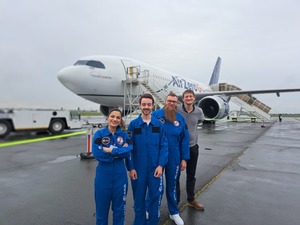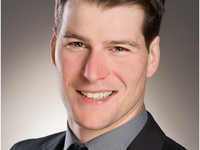A warm welcome to you!
Innovative materials, production technologies and drivetrain components - with interfaces to machine learning and artificial intelligence - are key technologies of the future.
In the Advanced Materials and Manufacturing research master's program, you can actively contribute to climate protection and resource efficiency and help shape the future - get started: find out more here!
With the three-semester course at the most research-intensive university of applied sciences in Baden-Württemberg, you will embark on an attractive Master's program that is virtually unique in Germany. In contrast to the classic "Taught Master's", the focus of the course here is on applied research - scientific work and practical relevance are combined at a high level. Excitement is guaranteed.
In intensive exchange with your supervising professor and as an active member of his or her research group, you will work independently on current research topics in the fields of materials science, production technology and product development right from the start. You will have access to state-of-the-art laboratories with high-quality equipment. And through accompanying specific lectures, you will acquire in-depth theoretical know-how in the field of your research topic.
You will complete your three-semester research project with your Master's thesis - ideally preparing you for challenging tasks in industrial research and advance development or for a subsequent doctorate!

Prof. Dr. Miranda Fateri, Constantin Schuler, Sebastian Uhl and Prof. Dr. Matthias Haag shortly before the flight with the world's largest parabolic aircraft (from left to right). Photo: © NOVESPACE | Thomas Villatt
Together with her team, consisting of Prof. Dr. Matthias Haag, Head of the Robotics Laboratory at Aalen University, Sebastian Uhl and Constantin Schuler, both students of the Advanced Materials and Manufacturing research master's program, Fateri conducted 3D printing experiments with artificial moon dust on several parabolic flights in France. "When we went into zero gravity and the 3D printer started printing, I was so relieved," says the young scientist and her cooperation partners, delighted with the successful mission. It was the 81st parabolic flight campaign for the European Space Agency (ESA). The company Novespace, a subsidiary of the French space agency, made the current research in zero gravity possible - thanks to its Airbus A310 Zero G flight laboratory, the largest parabolic aircraft in the world.
Read more about the graduates under this link:

